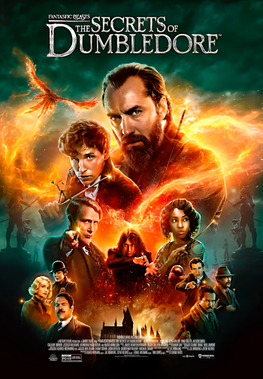The Power of Reconciliation
Sep. 13th, 2024 08:11 am The Power of Reconciliation by Justin Welby
The Power of Reconciliation by Justin WelbyMy rating: 4 of 5 stars
While I was still attending a United Methodist church with my father (which has since become a Global Methodist church after its split from the UMC), I occasionally went to my town's Episcopalian church due to a combination of my estrangement from my dad and my view of the Anglican Communion as liberalized Catholicism, in minor part due to my sexual liberalism and my father's church's growing intolerance towards nonheterosexuality. After obtaining vehicular freedom, I made The Episcopal Church my new denomination and eventually became baptized as a member. To date, my town's Episcopalian church remains one of very few places where I'm fully accepted.
I've mostly known during the past decade that The Episcopal Church was significantly more progressive than other Christian denominations, having Katharine Jefferts Schori as its first female Presiding Bishop and her successor, the outgoing Michael Bruce Curry, as its first African-American one. I had read Curry's Love Is the Way, and while I agreed with its general titular message, I did have some significant disagreements with him, far from theological, but more political in terms of the line between traditional family values (which had burned me throughout my life) and following Man's law, along with the standard belief among most American blacks of nonwhite infallibility.
Two years later, Justin Welby, the incumbent Archbishop of Canterbury and high primate of the Anglican Communion (and therefore my denomination's equivalent of Pope), wrote The Power of Reconciliation, which opens with a story of an ikon (an alternate spelling of icon) present in Stalingrad in December 1942 during the Second World War of the Virgin Mary and Jesus. He notes, very rightfully, that peace is always preferrable to war, and that the former is the maturity of politics and the latter the failure. Welby elaborates that death by violences spreads throughout subsequent human generations, and that historically, ancestry has defined people.
The Archbishop of Canterbury continues by mentioning different ways in which one can find an objective identity, including declarations about oneself and through relationships with others. He indicates that overreach and overspeed can mar reconciliation, since in the former case, goals tend to be unrealistic, and in the latter, peacemaking isn't an overnight process and takes time. Welby notes several obstacles to reconciliation like the need for sacrifice, perceived honor and shame, and neurochemistry due to various stimuli. He indicates various African civil wars, including those in the Democratic Republic of the Congo (formerly Zaire), and that different nations across the world have divergent views of historical events.
Welby elaborates on the six Rs of the Coventry model: researching, relating, relieving, risking, reconciling, and resourcing (though I was often confused had to look online to actually determine said specific Rs since they often aren't explicitly stated throughout the book). He then moves from the theoretical to the highly practical, noting the vast challenge of difference that social media has greatly amplified, which he says should create curiosity rather than division. The Archbishop highlights a niche quote from Dr Martin Luther King Jr that Presiding Bishop Curry had mentioned that eleven o'clock Sunday morning is the most segregated hour in America, that Christians tend to go to churches full of people like themselves.
The author briefly highlights the "non-apology," an insincere apology that puts blame on victims for being offended and tend to include "if." From personal experience, I would elaborate upon this that apologies that include "but" or an excuse are non-apologies as well. He mentions the need to "disagree well," which in my case has often been difficult given that others with whom I have clashed in the past, were it in person or online, have tended not to be very civil about various disagreements. Throughout his book, he demonstrates that he is definitely with the times, given his references to various modern films like Miss Congeniality, Django Unchained, and writer J.K. Rowling.
The Archbishop highlights three examples of where reconciliation is needed, the first being climate change that threatens the habitability of major portions of the planet, especially low-lying areas and the Tropics, with individual needs of countries often not considered, along with the need for fair trade, stopping conflicts, and green technology. Second is racial and ethnic differences and divisions, which he notes are often born out of common fiction and where he cleverly weaves in the video games Tetris and Minecraft, the former being "old news" and the latter new. The third is where hatred is frequently considered the greater good, Welby noting that governments need to accommodate and adapt to divided societies.
The author concludes by mentioning that reconciliation requires courage not just from the peacebuilder but more for those caught in conflicts, noting that peace needs to be made with enemies and that the stronger must help the weaker. He ends with warnings of potential cyber and nuclear wars, which I believe could become very real within the next few years. In the end, I enjoyed Archbishop Welby's book, even though I have some disagreements with him (like being an apologist for a certain group whose name rhymes with "fat wives' bladder"). Regardless, it's an excellent philosophical read for any Christian regardless of denomination.
View all my reviews


